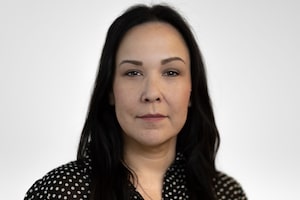Joseph “Martial” Arbour was born in three different places, and died once in Quebec City. At least, he was according to the different birth certificates he has received in his four-year search to obtain an accurate document.
Mr. Arbour, a 68-year old living in Thunder Bay, was supported in his search by an ID action group headed by the Kinna-Aweya Legal Clinic, the Norwest Community Health Centres and researchers from Lakehead University. The non-profit organizations in Northern Ontario are calling for the immediate end to barriers in accessing what they call a foundational piece of identification.
Mr. Arbour’s application was returned numerous times, but he’s had his birth certificate for about a year and a half now.
“With this birth certificate, I was able to find most of my family,” Mr. Arbour said about reconnecting with siblings and meeting nieces and nephews for the first time. He said he found his brother in Winnipeg through a Google search for his father’s birthplace, a requirement for his own application.
“I found his name on [Google] and was able to get a hold of him on Facebook and then he told me about my sisters that live in Alberta,” he said, adding that he had lost touch with his siblings after they were no longer in foster care and boarding school.
The group of non-profits held ID clinics across the region including in remote, fly-in communities beginning in 2018 after receiving an Ontario Trillium grant to identify barriers in obtaining the document.
Their report, released Friday, called Eliminate Systemic Barriers To Obtaining and Keeping Ontario Birth Certificates, highlights six calls to action, starting with the elimination of all fees related to obtaining the important document.
“The fees are not a significant revenue source for the province, but they are a hardship for people living in poverty,” the report states.
Other calls to action include simplifying the application process, eliminating the guarantor requirement, recognizing kinship and customary care agreements to support family unification and enable families to access services, for individuals in care or custody to keep their birth certificates on them, and to return to the smaller, more durable cards previously used by the province.
Mr. Arbour is happy to have received his birth certificate, however, his mother’s name was spelled incorrectly and he’s now trying to get it fixed but doesn’t know where she was born. He believes she was from the Six Nations from southern Ontario or New York State – another challenge to overcome. He’s still not sure why or how his previous birth certificates showed three different birthplaces, but he says the one he has now is accurate, aside from his mother’s last name.
Chris Sanders, one of the Lakehead University researchers, said it’s not just individuals who are facing barriers but the non-profit organizations aren’t resourced well enough to help people navigate the system. And it’s not just Thunder Bay, he said, adding that rural communities further north face even more barriers because they have fewer resources.
The study says Indigenous peoples are uniquely affected and that ID services in the province have to consider the historical events that have resulted in missing, inaccurate, or inconsistent information that make it difficult to obtain ID.
“The placement of Indigenous children in residential schools has resulted in a situation where many individuals do not have access to familial information deemed necessary by Service Ontario to apply for a birth certificate,” the study reads. “The same situation exists for those Indigenous children removed from their families during the Sixties Scoop.”
The study says that while its focus was on Ontario, it’s reasonable to conclude that Indigenous people across Canada face the same challenges and barriers.
“It becomes this weird, I would argue, colonial model to manage Indigenous peoples and to prevent them from getting services,” said Dr. Kristin Burnett, a researcher and chair of Indigenous Learning at Lakehead University.
Beth Ponka, executive director of the Kinna-Aweya Legal Clinic, said the study group is also calling on all provincial ministries to recognize customary care and kinship agreements, a common path for child welfare agencies to place Indigenous children with extended family rather than in traditional foster care.
The challenges persist for children aging out of care and people who are incarcerated, often having their birth certificates confiscated and not returned because of bureaucratic processes, the study says. Indigenous people and children have long been disproportionately represented in the child welfare and prison systems, both provincially and federally.
Ms. Burnett said these barriers often leave people frustrated enough to abandon the process, or in some cases die before making any headway. She recalled one individual who couldn’t renew their health card because they were born in the bush and didn’t have a live statement of birth from a hospital.
“They couldn’t get it, they couldn’t get health care. And literally, this individual died without getting health care,” she said.
Mr. Sanders said the calls to action are straightforward and non-partisan fixes.
Ms. Ponka agreed, pointing out “the provincial government just recently eliminated the fees for licence renewals.”
 Willow Fiddler
Willow Fiddler